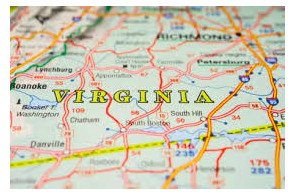
On March 25, 2021, Virginia Governor Ralph Northam signed into law new protections for employees related to the medicinal use of cannabis oil. Effective July 1, 2021, the newly enacted § 40.1-27.4 will prohibit employers from disciplining, discharging, or discriminating against an employee for his or her lawful use of cannabis oil so long as the use is pursuant to a valid written certification issued by a health care practitioner for the treatment of the employee’s diagnosed condition or disease.
These limited protections for medicinal use of “cannabis oil” should not be confused with broader protections for all forms of “medical marijuana.” Rather, the new law only applies to “cannabis oil,” which has a limited and technical definition under Virginia law: “any formulation of processed Cannabis plant extract, which may include oil from industrial hemp extract acquired by a pharmaceutical processor, or a dilution of the resin of the Cannabis plant that contains at least five milligrams of cannabidiol (CBD) or tetrahydrocannabinolic acid (THC-A) and no more than 10 milligrams of delta-9-tetrahydrocannabinol per dose.”
Moreover, though the new law is written broadly to prohibit any form of discipline, discharge, or discrimination, it also contains certain exceptions. In particular, the new law expressly states that it does not: (i) restrict an employer’s ability to take any adverse employment action for any work impairment caused by the use of cannabis oil or to prohibit possession during work hours; (ii) require an employer to commit any act that would cause the employer to be in violation of federal law or that would result in the loss of a federal contract or federal funding; or (iii) require any defense industrial base sector employer or prospective employer to hire or retain any applicant or employee who tests positive for tetrahydrocannabinol (THC) in excess of certain amounts.
The practical effect of these statutory exceptions is still unknown. For example, though the new law allows employers to prohibit possession of cannabis oil “during working hours” and allows employers to take adverse action for any “work impairment” caused by the use of cannabis oil, it is unclear how these statutory exceptions will interact with existing protections under Virginia law for disabled employees, particularly for any employees who are prescribed cannabis oil to treat an existing disability. The new statue, for example, does not provide any guidance for how it will interact with the Virginia Human Rights Act, which prohibits discrimination based on an employee’s disability and requires employers to provide “reasonable accommodations” to disabled employees. It remains to be seen if the use of cannabis oil “during the working hours” can ever be viewed as a “reasonable accommodation” or whether employers can rely on the express exceptions in the new statute to argue that the use of cannabis oil “during working hours” is per se unreasonable.
These protections for medicinal use of cannabis oil accompany broader changes in Virginia law regarding marijuana use and possession. As we previously reported last year, Virginia has enacted “ban the box” legislation that prohibits employers from requiring job applicants to disclose information regarding an arrest, criminal charge, or conviction for simple possession of marijuana.
Moreover, starting on July 1, 2021, individuals over the age of 21 can legally possess up to an ounce of marijuana and grow up to four plants for personal use. At this time, however, Virginia has not passed any employment-related protections for marijuana possession or use (other than the limited protection for medicinal use of cannabis oil discussed above), and employers are still permitted to prohibit marijuana use and subject employees to drug tests for marijuana.
As Virginia marijuana laws continues to evolve, employers should be mindful of potential employment-related impacts from these (and future) laws.




